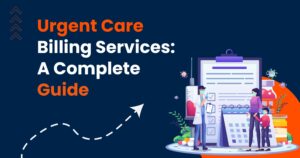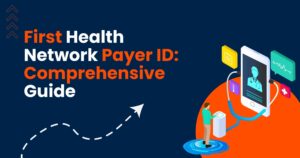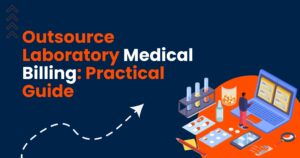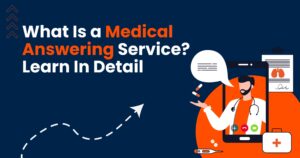In today’s healthcare landscape—where patient expectations have transformed, communication gateways have multiplied, and medical practices are bound to deliver round-the-clock support—the role of a medical answering service has become more mandatory than ever. Whether assisting busy clinics, solo practitioners, or large healthcare networks, these services consider every patient call to be handled promptly, expertly, and in compliance with strict medical communication protocols. This in-depth guide demonstrates these services, explains how they operate, highlights their importance, and illustrates their direct impact on patient satisfaction and the overall operation of medical practices.
Answering Service for Medical Office: Operations and Why Clinics Rely on It
Medical offices are specialized to operate in a high-stakes environment. A missed call doesn’t only define a lost business opportunity—it may highlight an urgent patient need or a time-sensitive medical requirement. This is how clinics rely on an answering service for medical office without interrupting incoming patient communication.
1. How These Services Work for Clinics
A professional answering service dedicated to medical offices typically offers:
- Medical appointment scheduling and rescheduling
- Live call handling during and after working hours
- Message in take and secure message forwarding
- Urgency-based triage routing
- HIPAA-compliant communication
- Patient intake and basic instruction delivery
- Coverage during busy hours, vacations, and staff shortages
2. Pros of Front-Desk Staff
Receptionists normally manage phones, in-office check-ins, insurance queries, follow-ups, and administrative level tasks. An expert medical answering service reduces the workload significantly. With excessive handling, front-desk employees try to never miss any incoming calls.
3. Ultimate First Impressions
Studies show that patients fathom the level of medical expertise based on calls answered. Quick and reliable answering services ensure that calls are typically responded to with empathy and accuracy. This sets the tone for the entire patient experience.
A Wider Spectrum of Patient Communication
The communication needs of the broader healthcare industry are exponential. This is where a more comprehensive health care answering service comes into play.
1. Who are the Service Users?
This health-based answering service may cater to:
- Dental and orthodontic practices
- Hospital facilities and urgent care centers
- Home health agencies
- Mental health therapists and facilities
- Physical therapists and rehab centers
- Medical imaging centers and labs
- Healthcare nursing homes
Tailored call handling can better deal with the unique communication needs of each sector.
2. The Significance of Compliance
Healthcare calls deal with sensitive patient data, so compliance is non-negotiable. The best HIPAA standards ensure the best answering services for:
- Encrypted message delivery
- Verified team training
- Compliance logs and audits
- Safe data handling
- Confidentiality protocols
3. Multi-Channel Communication
Patients may reach out through:
- SMS text
- Patient portal messaging
- Web chat
- Callback requests
Doctors Answering Service: Customized Assistance for Individual Physicians
Patients calling after hours may be seeking urgent medical service, or test result clarification. A specialized doctor’s answering service handles all these complex scenarios.
1. Individualized Call Routing
Doctors often specify protocols that instruct:
- Which calls should be answered on the spot
- When to approach the on-call physician
- Which information needs to be collected before escalating
- What sort of instructions can be easily given to patients directly
- How the response should be logged and timestamped
This ensures that the doctor receives only the calls that require immediate attention.
2. Assistance Across Specialties
Explore different communication skills. For instance:
- Pediatricians need gentle, family-centered interaction.
- Cardiologists may need quick action for chest pain calls.
- Psychiatrists need sensitivity and crisis-aware regulations.
- OB-GYNs often handle urgent after-hours situations.
Specialized answering services help staff understand the nuances of each medical area.
3. Reducing Physician Burnout
With a responsible answering service, doctors can:
- Save personal time
- Largely work on their clinical responsibilities.
- Escape non-urgent after-hours interruptions.
This balance works well for mental health and for patient safety.
Emergency Response Answering Service: Critical Medical Calls
Medical practices that regularly deal with critical scenarios often rely on an emergency response answering service. This is specifically planned for the following services.
1. Considering Critical Calls
Agents are well-trained in emergency response communication to quickly understand red-flag symptoms such as:
- Severe allergic reactions
- Shortness of breath or chest congestion
- Uncontrolled bleeding from the body
- Behavioral health problem
- Suspected stroke signals
- OB-related urgencies
These services play a key role in ensuring that urgent calls are escalated to the right provider without delay.
2. Structured Triage Regulations
A professional emergency response answering service works in the light of pre-approved triage protocols, which outline:
- What queries to ask
- What details to document
- How to enlist urgency levels
- When to direct patients toward emergency sectors
- When to take on board the on-call physician
3. Real-Time Monitoring and Documentation
Every second matters in an emergency. Modern services include:
- Timestamped logs
- Real-time escalation monitoring
- Delivery confirmation
- Priority alert options
- Smooth reach to full call recordings
Automated Medical Answering Service: Tech Role in Healthcare Communication
Modern systems prevalently incorporate tech-driven solutions. An automated medical answering service uses AI, IVR menus, and digital triage options to modernize and streamline routine communication.
What Can Automated Communication Handle?
Automation is perfect for predictable and repetitive tasks such as:
- Sending reminders
- Appointments confirmation
- Processing prescription auto-refill requests
- Delivering lab result notices
- Collecting patient intake information
- Routing calls automatically to the concerned department.
These tasks reduce human burden and help them to focus on urgent patient interactions.
Why Medical Answering Services Count More Than Ever
Healthcare communication intricacies have grown exponentially. Patients look for instant access, clarity, empathy, and reliability under one roof and every hour of every day. Missed calls can lead to delayed treatment service, revenue depreciation, and eventually reputational loss.
Medical answering services ensure stability even during chaotic conditions like:
- Staff shortages
- Public health level emergencies
- Holiday shutdown
- Irregular spikes in call volume
What Should be the Next Approach?
A medical answering service is an essential component of the modern healthcare communication landscape. As patient expectations never stop rising, the need for dependable, trained, and technology-enhanced communication partners becomes crucial. Providers who invest in communication based solutions not only strengthen their operational efficiency but also boost the quality of care. In an era where timely answering can directly impact clinical services, partnering with a trusted provider, MDhelpTek can make all the difference in medical practice, which needs to be more responsive, resilient, and truly patient-centered.





